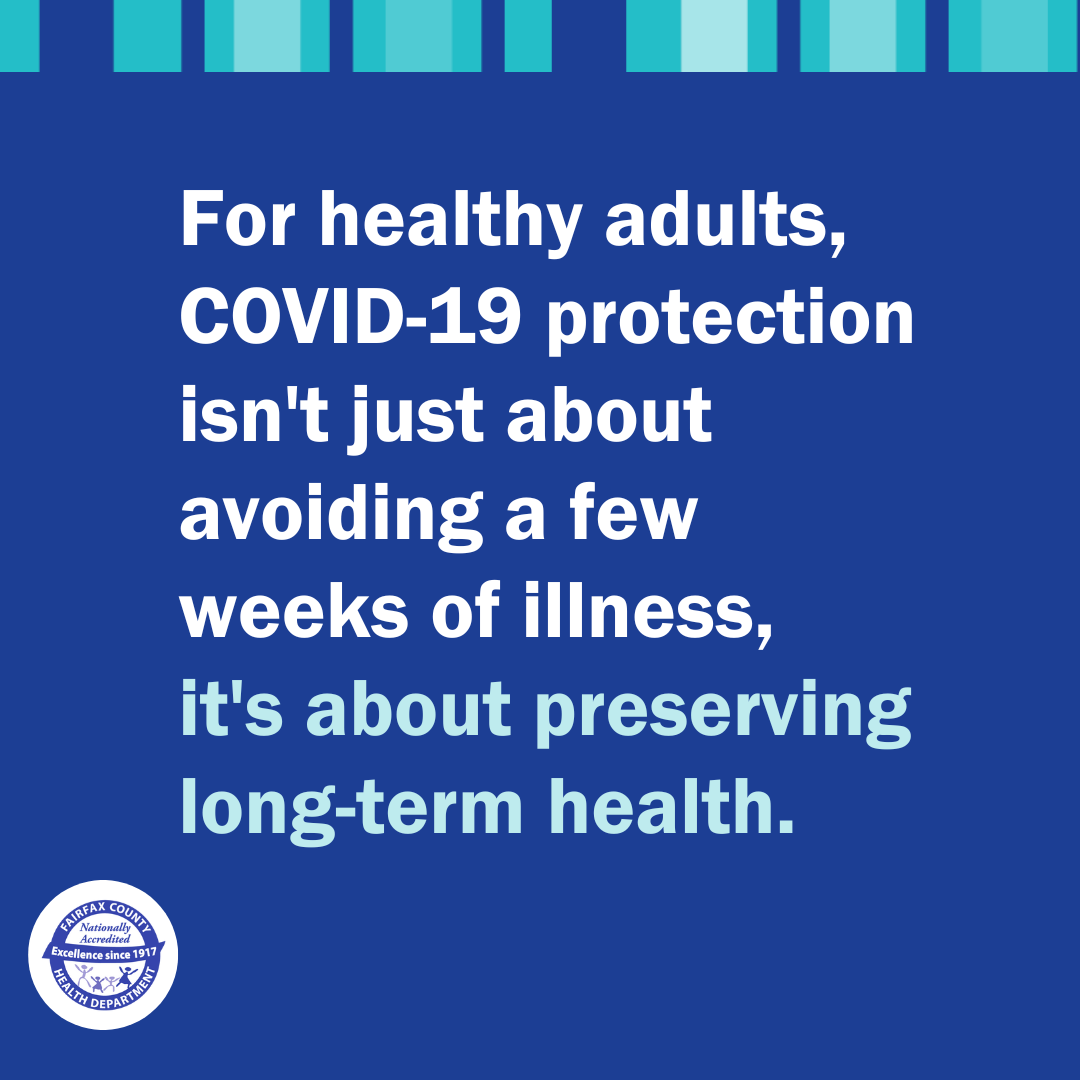Health Department Alert:

 Some people who have had COVID-19 can experience long-term effects from their infection. This is known as post-COVID conditions or long COVID. People call post-COVID conditions by many names, including: Long COVID, long-haul COVID, long-term effects of COVID, and chronic COVID.
Some people who have had COVID-19 can experience long-term effects from their infection. This is known as post-COVID conditions or long COVID. People call post-COVID conditions by many names, including: Long COVID, long-haul COVID, long-term effects of COVID, and chronic COVID.
There is no test that determines if your symptoms or condition is due to COVID-19. Long COVID is not one illness and is different from person to person. Your healthcare provider considers a diagnosis of post-COVID conditions based on your health history, if you had a diagnosis of COVID-19 either by a positive test or by symptoms or exposure, as well as doing a health examination.
Scientists are working to better understand post-COVID conditions and how many people experience them. Estimates of the proportion of people who have long COVID vary.
Researchers are working to understand which people or groups of people are more likely than others to get long COVID, and why. While anyone who gets COVID-19 can develop Long COVID, studies have shown that some groups of people are more likely to develop Long COVID than others,
Scientists are researching some health inequities that may place these communities at higher risk of both getting infected or developing post-COVID conditions.
The best way to prevent long COVID is to protect yourself and others from becoming infected. Preventing severe outcomes from COVID-19 illness helps prevent Long COVID.
The CDC recommends staying up to date on COVID-19 vaccination, practicing good hygiene, and taking steps for cleaner air. CDC also recommends when you may have a respiratory virus, taking steps to prevent spreading the virus and getting healthcare promptly for testing and/or treatment if you have risk factors for severe illness. Treatment may help lower your risk of severe illness.
People with long COVID can have a wide range of symptoms that can last weeks, months, or even years after infection. Post-COVID conditions may not affect everyone the same way. Some people with Long COVID have symptoms that are hard to explain or difficult to manage.
People with long COVID may experience health problems from different types and combinations of symptoms happening over different lengths of time. Sometimes the symptoms can even go away or come back again.
Fatigue, brain fog, and post-exertional malaise (PEM) are commonly reported symptoms, but more than 200 Long COVID symptoms have been identified. Other commonly reported symptoms include (not a comprehensive list):
General symptoms
Respiratory and heart symptoms
Digestive symptoms
Neurological symptoms
Other symptoms
Long COVID can sometimes result in disability. Learn more: Guidance on “Long COVID” as a Disability Under the ADA.
Experiencing or caring for someone with Long COVID can be confusing, challenging, and frustrating — especially when there are no immediate answers or solutions.
Learn more and find resources to help you live with or care for someone with Long COVID.
Talk to your healthcare provider if you think you have, or your child has, Long COVID. Your healthcare provider can help you come up with a personal medical management plan that can help improve their symptoms and quality of life. Preparing for an appointment can make all the difference in getting the proper evaluation, diagnosis, and treatment.
To help get the most out of appointments, scroll through the information from the CDC below. You can also download a printable Healthcare Appointment Checklist.
Bring/share your health history. Be sure to talk to your healthcare provider about how your symptoms have changed over time and how they have affected your daily activities.
Bring/share your list of medications and supplements. Be ready to discuss whether any of your medications or supplements have helped you feel better.
Bring/share your list of questions. Bring your list of prepared questions to your healthcare provider. Ask your most important questions first (in case time is limited).
Know your next steps. Carefully listen to and answer all of your provider’s questions. Make sure you understand the next steps, such as tests, follow-up, referrals, and future appointments.
Ask for a summary. Ask for an appointment summary. If needed, ask your provider to write down, print out, or email
Find an overview of Post-COVID Conditions and resources for healthcare providers.
